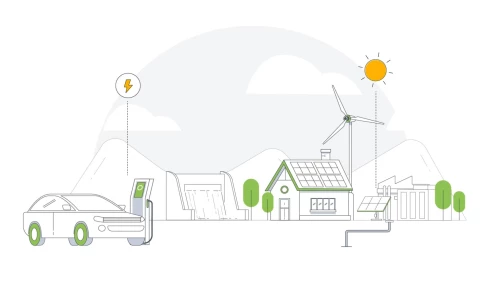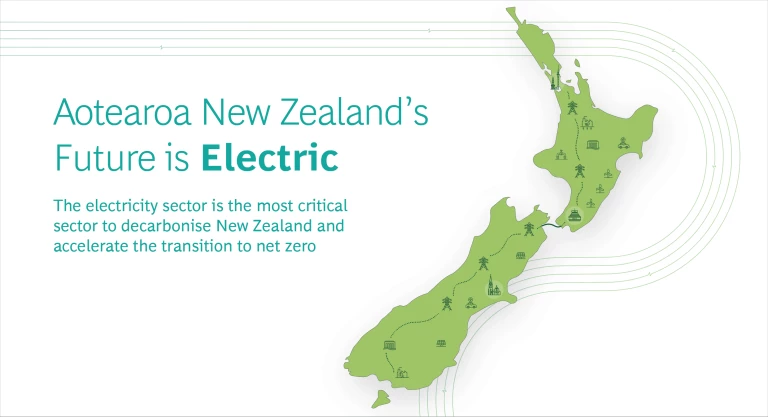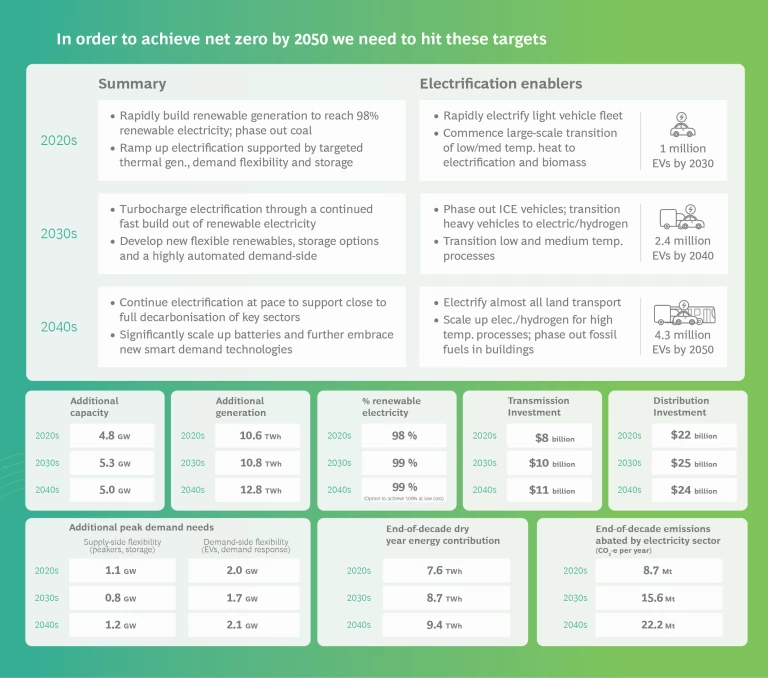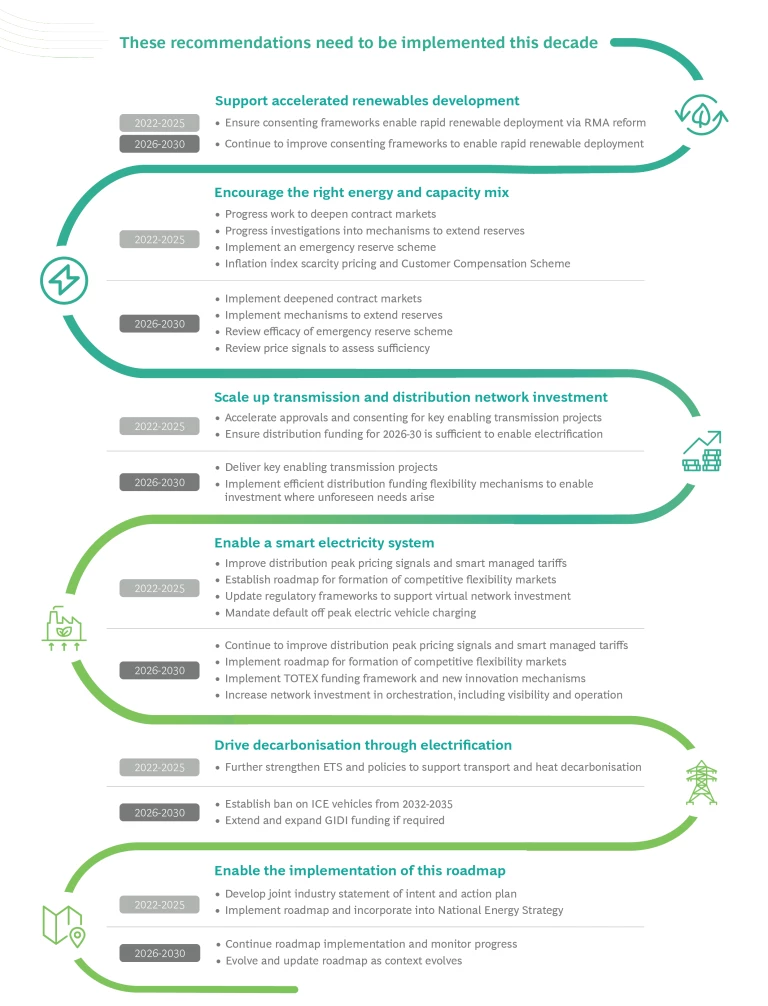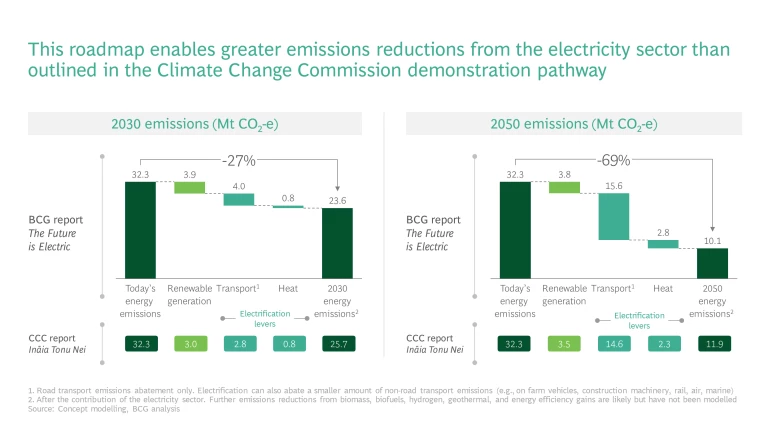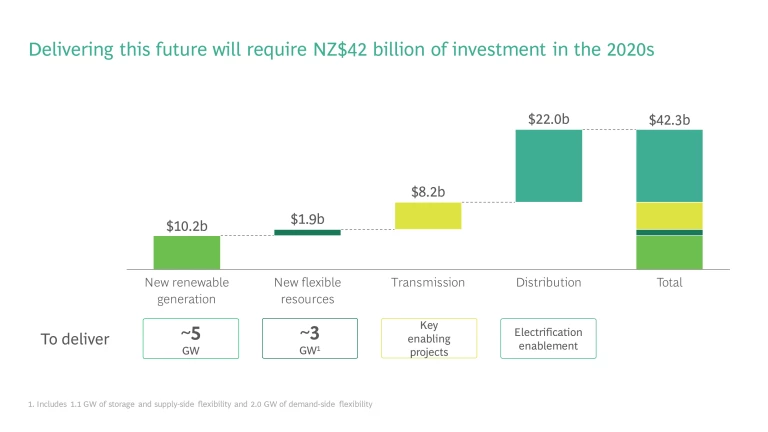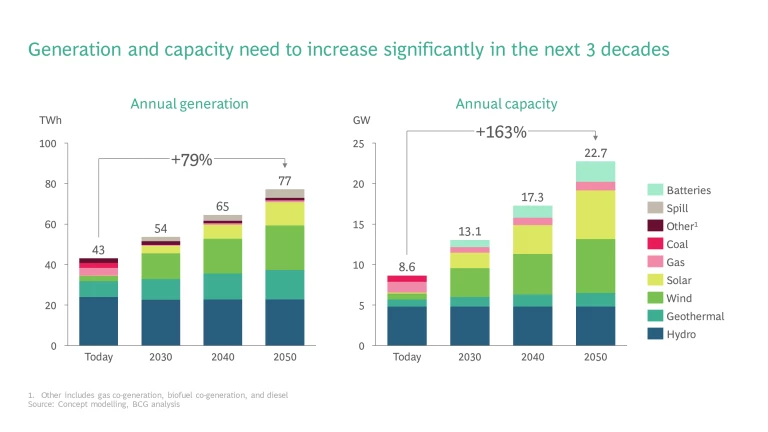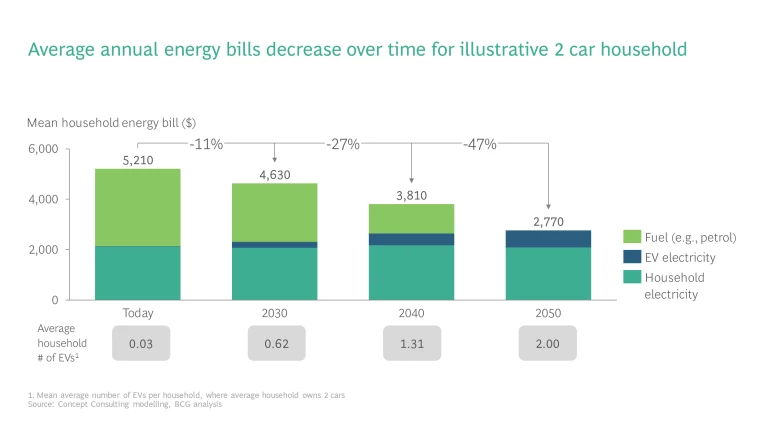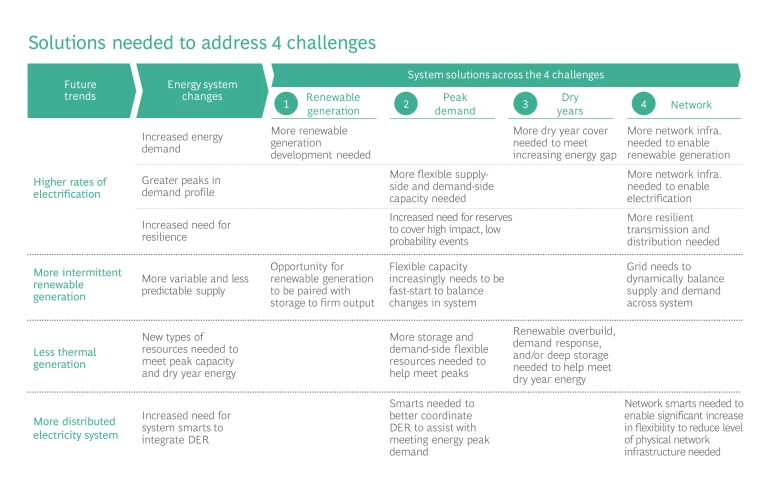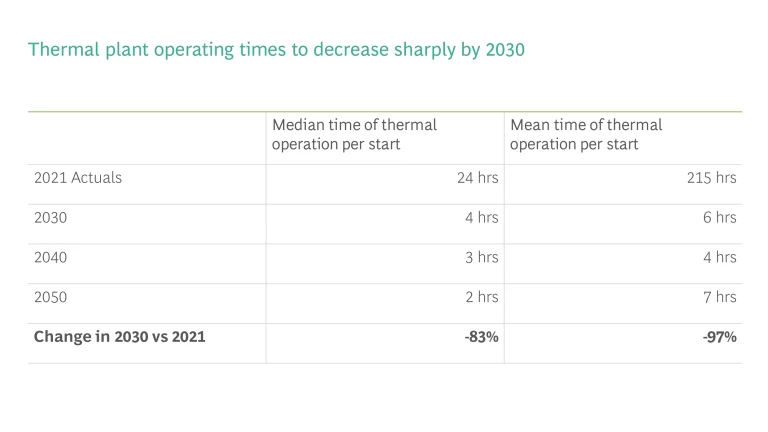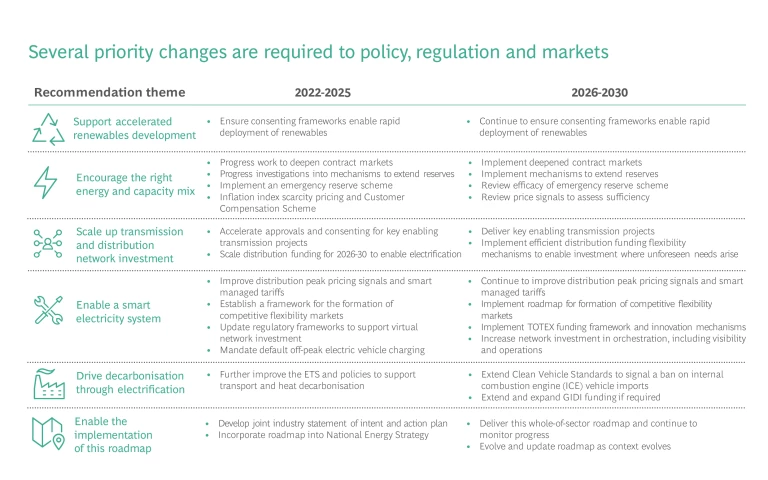The electricity sector in Aotearoa, New Zealand, contributes up to 70% of the gross emissions reductions required under the country’s 2050 net zero carbon target.
This independent report by BCG presents a whole-of-sector view of the electricity sector in Aotearoa, New Zealand, which plays a key role in the country’s emission reduction plan, as the industry can help reduce 70% of carbon emissions required under the country’s net zero carbon target. This report outlines a credible pathway to achieving New Zealand’s decarbonization objectives through more renewable generation and the electrification of transport and heating. Doing so will require unprecedented investment, but could result in lower household electricity bills due to improved energy efficiency thanks to overall fuel savings from electric vehicles.
To reach net zero and secure a more sustainable future, the 2020s is the critical decade. With decisive early action and rapid transformation, the sector can achieve close to 100% renewable electricity by 2030 and abate 22 million tonnes of CO2-e annually by 2050.
The following infographic conveys what needs to be delivered each decade, along with six recommendations to achieve net zero.
Key Findings
The next decade is critical for Zealand’s transition to net zero carbon. With decisive, early action supported by the right policies, regulation, and market settings, the country’s electricity system can:
- by 2030, transition to 98% renewables and kick-start electrification, reducing New Zealand’s emissions by 8.7 Mt CO2e per year; and
- by 2050, enable rapid electrification of transport and heating, reducing New Zealand’s emissions by 22.2 Mt CO2e per year.
These exciting outcomes are within reach for New Zealand—but only if action is taken at pace.
2. A net zero New Zealand relies on investment across generation, storage, and networks.
Deep, rapid decarbonization at the lowest cost to consumers relies on a swift build of renewable generation. It will see demand peaks and dry years (when less hydroelectric generation is available) supported by batteries, demand response, some renewable generation overbuild (building more wind and solar generation than is ordinarily needed), and a small amount of fossil fuel generation (2% of total generation) in 2030. It will also require an investment of NZD$42 billion in the 2020s, including increased spend across generation, transmission, and distribution.
3. This unprecedented investment is needed to build an additional ~5 GW of renewable generation capacity by 2030 and ~15 GW by 2050.
By 2050, generation is forecasted to increase by ~80%, while capacity will need to increase by over 160%. This is because wind and solar tend to have lower capacity factors than do generation sources such as hydro, geothermal, coal, and gas—and also because peak demand will be significantly higher.
In order to meet the needs of New Zealand’s electricity consumers, 13.1 GW of total capacity will be required in 2030, including 4.4 GW of new utility-scale wind and solar. By 2050, 22.7 GW of total capacity will be required, including a 12.6 GW of wind and solar, and 2.5 GW of batteries. This means New Zealand will need to build renewable generation facilities and batteries at an unprecedented pace and scale.
4. Despite significant investment, a more electrified energy system powered by renewable electricity will lead to flat household electricity bills and declining household energy bills.
Greater electrification, supported by a higher penetration of renewable electricity generation and energy efficiency improvements, can lead to reduced household electricity bills (excluding home electric vehicle charging)—around 11% lower in 2030 and 47% lower in 2050—as consumers benefit from significant overall fuel savings due to the electrification of transport.
5. To achieve this decarbonized and more affordable energy future, four challenge areas will need to be addressed.
The imperative to decarbonize results in four challenges for the electricity sector to maintain and improve energy equity, security, and sustainability:
- Renewable generation: Develop new renewable generation at a sufficient pace
- Peak demand: Ensure sufficient flexible generation and capacity to meet increasing peak demand
- Dry years: Ensure sufficient flexible generation and demand energy for dry years
- Networks: Develop sufficient distribution and transmission infrastructure (including smart virtual infrastructure) to enable new electrification, generation, flexible capacity, and flexible energy
6. To deliver this future and address these four challenges, the electricity system in New Zealand will undergo a rapid transformation.
In the 2020s, the system will transition from consisting of primarily baseload, mid-merit, and flexible resources to one that comprises mostly intermittent and flexible resources. As more intermittent generation enters the electricity system and over 95% renewables is achieved, the value of slow-start fossil fuel thermal power plants for meeting peak demand will decline significantly. There will be an increasing need for faster, more responsive, flexible supply-side and demand-side resources.
Additional faster, more flexible resources that could provide the required flexibility during this decade include batteries, dynamic demand response, and open cycle gas turbines (OCGT). In the future, these gas turbines could run on green fuels, such as biodiesel or biomethane.
From 2030, the transition will likely become easier as the cost of technologies such as lithium-ion batteries, long-duration storage, zero-emissions generation, and smart system enablers such as automation and artificial intelligence (AI) decline. With these technologies, the system will become less reliant on fossil fuels to meet both peaks and dry years. Electricity networks, particularly distribution networks, will also benefit from this increased system flexibility, allowing them to better manage complex, multi-directional power flows that will emerge on their networks.
7. Policy, regulatory, and market reforms are required to enable the transition this decade.
To achieve close to 100% renewable electricity and kick-start electrification in the 2020s, we propose the following recommendations be implemented.
Appendix 1: Electricity sector context
Appendix 2: Sector initiatives
BCG was commissioned to write this report on behalf of several participants in New Zealand’s energy sector, all of whom contributed their insights, conclusions, and recommendations. Concept Consulting conducted the quantitative modeling of pathways; RSM provided probity assistance to ensure data accuracy; and Russell McVeagh oversaw compliance with confidentiality requirements among sector participants.

